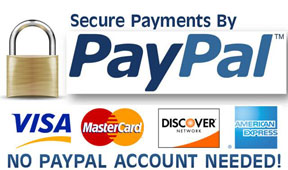How Will the Increased Stamp Duty on Second Properties Affect You?
Author: adminAs of 1st April 2016, there will be new stamp duty charges introduced, whereby an additional 3% will be added to each stamp duty rate band on purchases of second properties. These charges are to be introduced by the government as a way of freeing up the housing market for buyers by increasing the cost of buying second homes (i.e. landlords buying for buy-to-lets) by thousands of pounds.
For a long time, landlords buying properties have been criticised for the increase in house prices and for pushing out first-time buyers. In a bid to reduce this, Chancellor George Osborne has targeted landlords in his latest reviews.
Currently, if anyone buys a second home at a value of £200,000 they will pay a total stamp duty fee of £1,500. This is based on zero per cent for the first £125,000 and 2 per cent on the remaining £75,000.
However, from 1st April, anyone buying a property to let or as a second home will face a 3 per cent charge on the first £125,000 and 5 per cent on the further £75,000. This results in a total stamp duty bill of £7,500, a whopping £6,000 above the charges in place at present.
| Band | Existing Residential SDLT Rates | Proposed Additional Rates for Second Homes |
| £0-125k | 0% | 3% |
| £125,001 – £250k | 2% | 5% |
| £250,001 – £925k | 5% | 8% |
| £925,001 – £1.5m | 10% | 13% |
| £1.5m+ | 12% | 15% |
Who is going to be affected by these changes?
This is going to affect anyone who is looking to buy a second property that isn’t to be their main residence or anyone looking to replace a property that they don’t live in. So, if you already have several buy-to-let properties but are looking to buy a new property that you will live in and you’re selling your old one, then you won’t be affected by these extra charges.
What about forming a company?
Due to the announcement that landlords will have their mortgage interest relief reduced to the basic tax rate from April 2017, many of them are setting up limited companies. By doing this, they may receive a mortgage interest relief that is higher than the basic rate of 20 per cent. However, this won’t allow them to avoid of these new stamp duty charges.
In fact, the Treasury has even proposed that any companies who are buying a residential property (even if it’s their first one) will be subject to the higher rate of stamp duty. Only those companies that have 15 or more properties are likely to be exempt from this.
What about ‘flipping’ your main residence?
Another way people have suggested avoiding these additional charges is by ‘flipping’ where their main residence is. This was something that was seen during the MP’s expenses scandal as they would change their main residence in order to avoid paying capital gains tax on the profits when selling their second home.
However, the Treasury are trying to ensure all loopholes are covered and have already insisted that anyone buying a second home will have to pay the increased stamp duty, even if they plan to live in this new property and rent out the old one.
The only way this can be avoided is if you sell your old property within 18 months of moving into the new one. This has been put in place to help with any delays in buying and selling property and can be applied for through the HMRC.
What about buying it in your husband’s or wife’s name?
If you are civil partners or a married couple, you will be treated as one. So, any homes owned by your partner will come into play if you’re looking at buying a second home, regardless of whether one is in your partners name and the new one is to be in your name.
As before, if your partner sells their property within 18 months of you buying the new one, they will be able to apply for a refund.
What about buying a property for your children to live in?
There won’t be any exemptions for parent’s buying property for their children unless they buy the property in their child’s name. If your name is on the deed then you will be charged the higher stamp duty if you already own a property, meaning co-ownership will also see increased costs.
What about buying property abroad?
Any properties that are owned abroad will also be taken into consideration with this additional charge. Therefore, anyone purchasing a property in England, Wales or Northern Ireland but with a property outside of this area could be hit with the higher stamp duty charge.
This applies to Britons with holiday homes, Scottish property owners and foreign home owners looking to buy in Britain.
Who or what is exempt?
Caravans and Houseboats: This isn’t currently included in stamp duty charges and will remain so, even after 1st April.
Properties Under £40,000: The Treasury have determined that any homes under this value are liable for stamp duty, but this doesn’t need paying. They do not need a tax return filing with HMRC and are not subject to the higher rates that are being enforced.
Social Landlords: Registered Social Landlords and charities are and will continue to be exempt from stamp duty charges.
Multiple Purchases: Any company already owning 15 properties will be exempt from the additional rates. They are also considering this case for individuals purchasing this amount of properties too.


